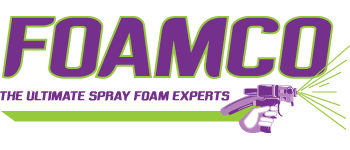Where You Shouldn't Insulate With Spray Foam Insulati
While spray foam insulation is a great solution for many areas of the home, there are certain areas where it should not be used. Improper installation or use of spray foam insulation in these areas can lead to problems such as moisture buildup, structural damage, and fire hazards. In this blog post, we'll outline some areas where spray foam insulation should not be used.
Exterior Walls Without Proper Ventilation
Spray foam insulation should not be used in exterior walls without proper ventilation. If the exterior walls are not properly ventilated, moisture can become trapped in the walls, leading to mold growth and structural damage. If you are considering using spray foam insulation in your exterior walls, be sure to consult with a professional to ensure proper ventilation is in place.
Unvented Attics without Proper Ventilation
Similar to exterior walls, unvented attics should not be insulated with spray foam without proper ventilation. If the attic is not properly ventilated, moisture can become trapped, leading to mold growth and structural damage. In addition, unvented attics can also be a fire hazard if not properly insulated. It's important to consult with a professional to ensure proper ventilation and insulation techniques are used in unvented attics.
Areas with High Humidity Levels
Areas with high humidity levels, such as bathrooms, should not be insulated with spray foam. The moisture in the air can become trapped in the walls, leading to mold growth and other moisture-related issues. Instead, use moisture-resistant insulation such as fiberglass.
Small Cracks and Gaps
While spray foam insulation is great for sealing large gaps and cracks, it should not be used to fill in small cracks and gaps. The foam can expand and cause damage to the surrounding materials. Instead, use a caulking or sealant specifically designed for small cracks and gaps.
While spray foam insulation is a great solution for many areas of the home, there are certain areas where it should not be used. Call us at 1-845-361-1110 to schedule your no-obligation consultation with one of our expert Specialists to ensure proper installation techniques are used and to avoid potential problems such as moisture buildup, structural damage, and fire hazards.
